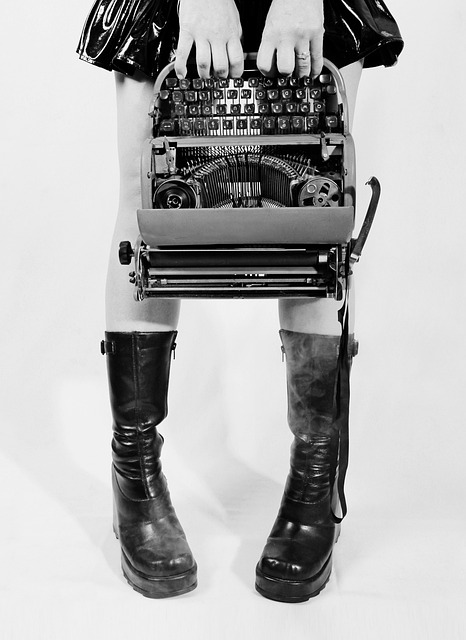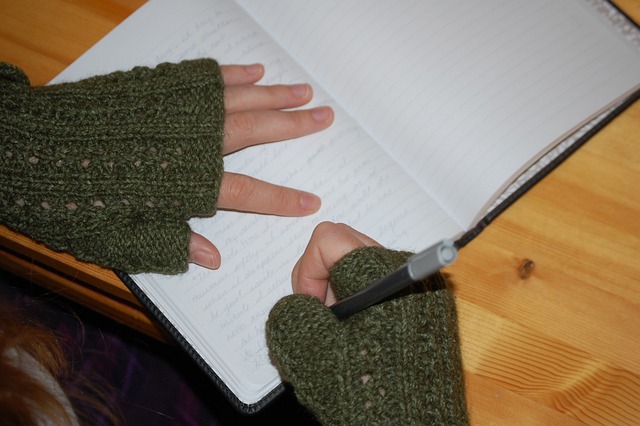There’s nothing more frustrating than staring at a blank page, desperately waiting for inspiration to strike. Writer’s block, that dreaded barrier standing between you and your words, can be a challenging hurdle to overcome. But fear not! In this article, we’ll explore powerful strategies that can help you conquer writer’s block and unleash a flood of creativity once again. Whether you’re an aspiring writer or a seasoned wordsmith, these tips will provide you with effective tools to break free from the clutches of this creative impasse. So, let’s dive in and discover the secrets to banishing writer’s block for good!
Contents
- Understanding Writer’s Block: Definition and Causes
- Definition of Writer’s Block
- Causes of Writer’s Block
- Identifying the Signs of Writer’s Block in Your Work
- Effective Strategies to Overcome Writer’s Block
- Harnessing the Power of Freewriting to Break Through Writer’s Block
- Utilizing Mindfulness Techniques for Writer’s Block Relief
- Nurturing Your Creativity: Tips for Preventing and Overcoming Writer’s Block
- Getting Unstuck: Proven Techniques for Overcoming Writer’s Block
- Unlocking Your Writing Potential: Strategies for Conquering Writer’s Block
- Strategies for Conquering Writer’s Block
- Frequently Asked Questions
- The Conclusion
Understanding Writer’s Block: Definition and Causes
Definition of Writer’s Block
Writer’s block is a common phenomenon that affects writers of all levels and disciplines. It refers to the inability to produce new work or experience a creative slowdown, hindering the flow of ideas and the progress of writing. Essentially, it is a psychological barrier that can arise due to various reasons and manifests as a daunting obstacle for writers.
Causes of Writer’s Block
Understanding the causes of writer’s block can help writers develop strategies to overcome it. While each individual writer may have different triggers, here are some common causes:
- Perfectionism: Striving for flawlessness can create immense pressure and lead to a fear of producing imperfect work.
- Overwhelm: Feeling overwhelmed by the magnitude of a project or a multitude of ideas can cause a mental block.
- Lack of inspiration: When lacking inspiration or motivation, it becomes challenging to generate fresh ideas or find the necessary drive to write.
- Fear of judgment: Concerns about how others may perceive their writing can paralyze writers and make it difficult to express themselves freely.
- Procrastination: Putting off writing tasks can build up stress and create a vicious cycle that perpetuates writer’s block.
By recognizing these causes and the role they play in writer’s block, writers can implement effective strategies to combat this common obstacle and regain their creative momentum.
Identifying the Signs of Writer’s Block in Your Work
Writer’s block can be a frustrating and discouraging experience for any writer. If you find yourself struggling to put words on the page or feeling stuck in your creative process, you may be experiencing the signs of writer’s block. Here are some key indicators to help you identify if writer’s block is affecting your work:
- Lack of motivation: One of the most common signs of writer’s block is a sudden decrease in motivation. You may find it difficult to sit down and start writing or feel unmotivated to continue your current project.
- Staring at a blank page: If you find yourself staring at a blank page for an extended period, unable to come up with any ideas or words to fill it, this can be a clear sign of writer’s block.
- Procrastination: When writer’s block hits, procrastination often follows. You may find yourself engaging in other activities or tasks to avoid facing the blank page or writing.
- Self-doubt: Doubting your writing abilities or constantly criticizing your work can be another sign of writer’s block. It may feel like everything you write is not good enough or lacking in quality.
Identifying these signs is the first step towards overcoming writer’s block. It’s important to remember that experiencing writer’s block is normal and happens to every writer at some point. Understanding and acknowledging these signs can help you devise strategies to overcome them and unleash your creativity once again.
Effective Strategies to Overcome Writer’s Block
Writer’s block can be frustrating and debilitating, but don’t worry! There are several effective strategies to overcome this common hurdle and get those creative juices flowing again. Here are some tried and tested techniques to help you break free from writer’s block:
- Change your environment: Sometimes a change of scenery is all you need to reset your mind and inspire fresh ideas. Take your laptop to a coffee shop, go for a walk in nature, or simply rearrange your writing space.
- Engage in free writing: Set a timer for 10 minutes and write down everything that comes to mind, even if it seems irrelevant or nonsensical. This practice can help you bypass your inner critic and tap into your subconscious, unlocking new ideas and perspectives.
Another effective strategy is breaking down your writing tasks into smaller steps. Instead of overwhelming yourself with the entire project, focus on completing small sections or outlines. This way, you can build momentum and feel a sense of accomplishment at each step. Additionally, finding inspiration from other sources such as books, articles, or artwork can stimulate your creativity and help you overcome writer’s block. Remember, everyone’s creative process is unique, so don’t be discouraged if a particular strategy doesn’t work for you. Experiment with different techniques until you find what works best for your individual writing style and preferences.
Harnessing the Power of Freewriting to Break Through Writer’s Block
One effective technique for overcoming writer’s block is the practice of freewriting, which is a form of spontaneous writing that allows your thoughts to flow freely without judgment or editing. By harnessing the power of freewriting, you can break through mental barriers and unleash your creativity, leading to fresh ideas and a renewed sense of inspiration.
The beauty of freewriting lies in its simplicity. To start, set a timer for a designated period, such as 10 or 20 minutes, and begin writing whatever comes to mind. It’s important to keep your hand moving or your fingers typing throughout the entire session, even if you’re writing repetitive or nonsensical phrases. The goal is to bypass your inner critic and engage in a stream-of-consciousness style of writing. Remember, there are no right or wrong answers in freewriting – it’s all about freely expressing yourself without worrying about grammar, punctuation, or coherence.
- Find a quiet and comfortable space where you can focus without distractions.
- Take a few deep breaths to relax your mind and body before you start.
- Set a specific time limit to ensure you stay committed to the freewriting exercise.
- Don’t censor yourself or worry about making sense – just let your thoughts flow.
- If you get stuck, write the same word or phrase over and over until a new idea emerges.
Through freewriting, you can tap into your subconscious mind and unlock hidden thoughts, memories, and ideas that may be the key to breaking free from writer’s block. By setting aside judgment and embracing the rawness of this technique, you’ll often find that your freewriting sessions lead to unexpected and inspiring breakthroughs in your writing process. So, give it a try and let your thoughts run wild on the page – you may be amazed at what you discover!
Utilizing Mindfulness Techniques for Writer’s Block Relief
When writer’s block strikes, it can feel like an insurmountable hurdle to overcome. However, incorporating mindfulness techniques into your writing routine can provide much-needed relief and help rekindle your creative flow. Here are some effective practices to enhance your mindfulness and overcome writer’s block:
- Take mindful breaks: Step away from your writing desk and engage in activities that promote relaxation and clarity. Going for a walk, practicing deep breathing exercises, or even meditating for a few minutes can help clear your mind and rejuvenate your creativity.
- Focus on the present moment: Instead of getting overwhelmed by the pressure to produce perfect sentences, bring your attention to the present moment. Paying mindful attention to your thoughts, feelings, and the environment around you can alleviate the mental burden and foster a calm writing mindset.
- Practice free writing: Set a timer for a specific duration, let go of any expectations, and start writing without judgment or censorship. This practice allows you to tap into your subconscious and unleash your innate creativity. Remember, this is a time for exploration and experimentation, not perfection.
By integrating mindfulness into your writing process, you can break free from the chains of writer’s block and rediscover the joy of storytelling. Stay present, be kind to yourself, and embrace the journey of self-expression. The words will flow effortlessly once you embrace the power of mindfulness.
Nurturing Your Creativity: Tips for Preventing and Overcoming Writer’s Block
Writer’s block, that dreaded enemy of every writer, can strike at any time and leave us staring blankly at a blank page or blinking cursor. But fear not! With a few strategies up your sleeve, you can nurture your creativity and banish writer’s block for good. Here are some helpful tips to get those creative juices flowing again:
- Change your environment: Sometimes, a change of scenery can work wonders for your creativity. Step away from your usual writing spot and find a new place that inspires you. It could be a cozy coffee shop, a serene park, or even just a different room in your house. Surrounding yourself with a fresh environment can spark new ideas and rejuvenate your mind.
- Embrace freewriting: Don’t let your inner critic stifle your creativity. Set a timer for 10 minutes and write without stopping or worrying about grammar, spelling, or punctuation. Let your thoughts flow freely and don’t hold back. Freewriting can help you tap into your subconscious mind and reveal hidden gems of creativity.
- Seek inspiration: Sometimes, all it takes is a little inspiration to reignite your creativity. Read books, watch movies, listen to music, or explore art that resonates with you. Immerse yourself in different genres and styles, and you might find yourself inspired by a character, scene, or melody that sparks a new direction for your writing.
Remember, writer’s block is only temporary, and with these strategies, you can prevent it from derailing your creative journey. Experiment with these tips, tailor them to your own needs, and don’t be afraid to try new approaches. Nurturing your creativity is an ongoing process, so keep exploring and never give up on your passion for writing!
Getting Unstuck: Proven Techniques for Overcoming Writer’s Block
Writer’s block can strike even the most seasoned wordsmiths, causing frustration and often leading to missed deadlines. Fortunately, there are several proven techniques to overcome this creative obstacle and get those words flowing once again. Here are some effective strategies that have helped countless writers break free from the shackles of writer’s block:
- Free Writing: Set a timer for 10 minutes, grab a pen and paper or open a blank document, and just start writing. Don’t worry about grammar, punctuation, or coherence. The goal is to let your thoughts pour out without judgment or restriction. Allow your mind to wander and explore different ideas. You’ll be surprised how this exercise can unlock your creativity.
- Change your Environment: Sometimes, a change of scenery can do wonders. If you’re feeling stuck, step away from your usual writing spot and find a new location that stimulates your senses. It could be a cozy coffee shop, a bustling park, or even your favorite spot in nature. The fresh surroundings can help to stimulate your mind and give you a fresh perspective, sparking new ideas and inspiration.
- Brainstorming: When faced with a blank page, starting with a brainstorming session can help jumpstart your writing process. Grab a pen and paper, and write down every possible idea related to your topic. Don’t worry about the quality or feasibility of these ideas; the goal is to just let your thoughts flow freely. Afterwards, review your list and choose the most promising ideas to further develop into your writing piece.
Writer’s block may feel like an insurmountable hurdle, but with the right techniques, you can overcome it and unleash your creative potential. Remember, every writer is unique, so feel free to experiment with different strategies until you find what works best for you. By employing these proven techniques, you’ll be on your way to breaking free from writer’s block and completing your writing projects with renewed confidence and enthusiasm.
Unlocking Your Writing Potential: Strategies for Conquering Writer’s Block
Strategies for Conquering Writer’s Block
Writer’s block can be a frustrating hurdle, leaving even the most seasoned writers feeling stuck and unproductive. However, with a few well-crafted strategies, you can unlock your writing potential and overcome this creative roadblock. Here are some effective techniques to help you conquer writer’s block and get those words flowing again:
- Free Writing: Set a timer for 10 minutes and write whatever comes to mind without worrying about grammar or coherence. This helps to warm up your mind and break through any mental barriers that may be causing the block.
- Create an Outline: Sometimes, the overwhelming feeling of a blank page can make it challenging to start writing. By creating an outline, you can organize your thoughts and have a clear roadmap to guide your writing process.
- Change Your Environment: A change of scenery can do wonders for your creativity. If you typically write at your desk, try heading to a coffee shop, park, or even just a different room in your house. The new surroundings can provide fresh inspiration and perspective.
Frequently Asked Questions
Q: What is writer’s block and why does it happen?
A: Writer’s block is a common phenomenon that refers to the inability of a writer to produce new work or experience a creative slowdown. It can stem from various reasons, including self-doubt, perfectionism, lack of inspiration, fear of failure, or even external factors like stress or distractions.
Q: How does writer’s block affect writers?
A: Writer’s block can be quite frustrating and demotivating for writers. It can lead to feelings of guilt, anxiety, and a loss of confidence in one’s abilities. It’s often a barrier that prevents writers from expressing their thoughts and ideas, making it challenging to meet deadlines or complete projects.
Q: Are there any strategies to overcome writer’s block?
A: Absolutely! There are several powerful strategies that can help conquer writer’s block. These include:
1. Freewriting: Simply putting pen to paper or fingers to keyboard and writing without any specific goal or structure can help kickstart creativity and loosen up the mind.
2. Break it Down: Start with small writing tasks, such as writing short paragraphs or even sentences, to gradually build momentum instead of overwhelming yourself with a lengthy piece.
3. Change the Environment: Sometimes a change of scenery can do wonders. Consider writing in a different location, like a coffee shop or a park, to stimulate new ideas and senses.
4. Set Realistic Goals: Breaking your writing process into manageable chunks and setting achievable goals helps avoid overwhelm and allows for a sense of progress, boosting motivation.
5. Embrace Imperfection: Accept that your first draft doesn’t have to be perfect. Allow yourself the freedom to write poorly and revise later, focusing on getting your ideas onto the page.
Q: Can seeking inspiration from other sources help combat writer’s block?
A: Absolutely! Finding inspiration from various sources can be a powerful tool in combating writer’s block. Reading books, articles, or even listening to podcasts, watching movies or documentaries, or engaging in thought-provoking conversations can rekindle your creative spark and offer fresh perspectives. Remember to explore diverse topics, genres, or explore different art forms to stimulate your imagination.
Q: How can self-care and relaxation techniques contribute to overcoming writer’s block?
A: Taking care of yourself is essential to combat writer’s block effectively. Engaging in activities that promote relaxation and well-being, such as exercising, meditating, or practicing mindfulness, can help reduce stress and clear your mind. Additionally, ensuring you get enough sleep, eating nutritious meals, and taking breaks from writing to recharge can greatly aid in overcoming creative blocks.
Q: Are there any long-term strategies to prevent writer’s block?
A: Absolutely! Adopting certain habits can help prevent writer’s block in the long run. These include maintaining a regular writing routine, setting realistic deadlines, and taking regular breaks to prevent burnout. Additionally, finding a support system of fellow writers, joining writing communities or workshops, and seeking feedback can provide encouraging and constructive guidance to keep the creative juices flowing.
Q: Is it possible to completely eliminate writer’s block?
A: While writer’s block can occasionally reappear, implementing these strategies can significantly minimize its impact and duration. Remember, writer’s block is a common hurdle that most writers face at some point in their careers. With practice, perseverance, and these powerful strategies, you’ll surely overcome it and reclaim your creative flow.
The Conclusion
In conclusion, overcoming writer’s block is possible with the right strategies in place. By implementing these powerful techniques, writers can unlock their creativity and get back to producing high-quality content. So, don’t let writer’s block hold you back any longer – conquer it today!







